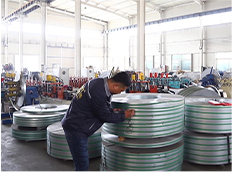Optimal Rabbit Cages for Successful Commercial Breeding Operations
Oct . 18, 2024 09:59 Back to list
Optimal Rabbit Cages for Successful Commercial Breeding Operations
Rabbit Cages for Commercial Breeding A Comprehensive Guide
In the realm of commercial rabbit breeding, the importance of proper housing cannot be overstated. Rabbit cages play a crucial role in the health, productivity, and overall well-being of the animals. As the demand for rabbit meat and fur continues to rise, establishing efficient and humane breeding practices becomes increasingly essential for breeders. This article explores the various types of rabbit cages suitable for commercial breeding, their features, and best practices to ensure an optimal environment for your rabbits.
Types of Rabbit Cages
1. Hutch Style Cages Hutch-style cages are among the most common options for rabbit breeding. These cages typically consist of multiple levels, allowing for separation of different breeds or age groups. They are usually made from wood and wire, providing adequate ventilation and protection from the elements. However, while these cages can be aesthetically pleasing and spacious, they often require more maintenance due to weather exposure and susceptibility to pests.
2. Wire Cages Wire cages are favored for their durability and ease of cleaning. Made entirely from wire mesh, these cages offer excellent ventilation and prevent the accumulation of waste, which is crucial for maintaining hygiene. Breeders often favor wire cages due to their ability to provide a shaded environment while allowing the rabbits to stay cool in warmer weather. Additionally, wire can deter some pests better than wooden materials.
3. Stackable Cages For breeders with limited space, stackable cages provide a practical solution. These cages have a vertical design that allows multiple levels of housing without consuming excessive floor space. They are typically made of wire with a solid base to facilitate easy cleaning and waste management. Stackable cages are particularly popular among large-scale breeders who need to optimize their facility's space for numerous rabbits.
Cages Designed for Breeding
When selecting cages specifically for breeding purposes, certain features become crucial
- Size and Space Cages should provide sufficient space for rabbits to move freely. A general rule of thumb is to allow at least 6 square feet of floor space for each adult rabbit. Breeding does with kits may require larger areas to accommodate the young ones during their early development stages.
- Breeding Boxes Including nesting boxes within the cages is essential for breeding rabbits. Does need a quiet and secure space to give birth and care for their kits. The boxes should be designed for easy access and cleaning while providing a snug environment for the mother and her young.
rabbit cages for commercial breeding

- Easy Cleaning Access Cages should be designed to facilitate easy cleaning. Removable trays or bottoms can help manage waste efficiently, reducing the risk of disease and maintaining a healthy environment for the rabbits.
- Ventilation Good airflow is vital to prevent respiratory issues among rabbits. Cages should allow for adequate ventilation while also providing shelter from direct sunlight and harsh weather conditions.
Best Practices for Rabbit Cages
1. Regular Maintenance Regularly inspect and clean the cages to prevent disease outbreaks. Replace any damaged materials immediately to ensure safety.
2. Isolation of Breeding Stock Keep breeding stock separate from other rabbits to prevent unplanned breeding and to manage the health of your breeding does and bucks effectively.
3. Monitor Health Regularly check the rabbits for signs of illness. Healthy rabbits contribute to a profitable breeding business.
4. Provide Enrichment Incorporate toys, chewable items, and hiding places within the cages to reduce stress and encourage normal behavior amongst rabbits.
5. Consider Temperature Control In extremely hot or cold climates, consider using additional insulation or heating lamps as necessary to maintain a stable environment for the rabbits.
In conclusion, selecting the right rabbit cages for commercial breeding is vital for the success of any breeding operation. By investing in the appropriate housing and adhering to best practices, breeders can ensure that their rabbits remain healthy and productive, ultimately leading to a more successful business. With a strong focus on humane practices, breeders can contribute positively to the growing demand for rabbit products while promoting animal welfare.
-
Hot Sale 24 & 18 Door Rabbit Cages - Premium Breeding Solutions
NewsJul.25,2025
-
Automatic Feeding Line System Pan Feeder Nipple Drinker - Anping County Yize Metal Products Co., Ltd.
NewsJul.21,2025
-
Automatic Feeding Line System Pan Feeder Nipple Drinker - Anping County Yize Metal Products Co., Ltd.
NewsJul.21,2025
-
Automatic Feeding Line System - Anping Yize | Precision & Nipple
NewsJul.21,2025
-
Automatic Feeding Line System - Anping Yize | Precision & Nipple
NewsJul.21,2025
-
Automatic Feeding Line System-Anping County Yize Metal Products Co., Ltd.|Efficient Feed Distribution&Customized Animal Farming Solutions
NewsJul.21,2025






